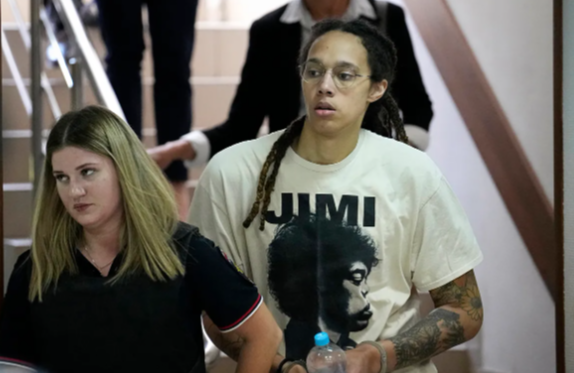(ThyBlackMan.com) This has been a year when the U.S. public has learned a lot about political prisoners. Using the definition of “political prisoner” via Encyclopedia Britannica Online, a political prisoner is “a person who is imprisoned because that person’s actions or beliefs are contrary to those of his or her government.” Even many of the most politically ignorant people in the U.S. are aware of the name of Native American political prisoner, Leonard Peltier, who is the longest-held political prisoner in the U.S. and a freedom fighter from the American Indian Movement. Peltier was denied parole last month at his first hearing in over a decade. A lot of people in the U.S. are also aware of the name, Julian Assange, the founder of Wikileaks.
In 2019, the U.S. Department of Justice charged Assange with conspiracy and other related crimes for the publication of classified documents that exposed U.S. war crimes in Afghanistan and Iraq, shared through Wikileaks. Assange spent years before his arrest in asylum, where he stayed in the Ecuadorian embassy in the U.K., before agreeing to a plea deal in June 2024 that under the terms with U.S. prosecutors, he will get no more detention time than the 62 months he had already served in the United Kingdom. Assange was released to Australia, his country of citizenship, a couple of months ago.

One of the most notable prisoners in recent sports history is WNBA All-Star Brittney Griner, who was sentenced to nine years after being arrested for the possession of cannabis oil at a Moscow airport years ago. Months of legal battles with the Russian court system went awry until late 2022 as the Biden Administration finally made a deal with Russia for a prisoner swap that allowed Griner to return to the U.S. In recent weeks, Wall Street Journal reporter Evan Gershkovich and corporate security executive Paul Whelan were among 24 prisoners exchanged in a multinational deal and returned to the U.S. Regarding that exchange, Griner was excited and posted on social media that “Every American returned is a win,” the statement continued in part. “Although today is one of celebration, our hearts go out to the many Americans still being held hostage overseas, and their families. As we extend support to those who have returned and celebrate the collective hands that helped to make American families whole — we must continue to do everything we can to shine a light on the remaining Americans detained.”
Brittney Griner is currently a member of the U.S. women’s national basketball team and her words and feelings no doubt come from her own imprisonment experience and having that perspective along with the relief of leaving detainment. She has previously worked with Bring Our Families Home, a campaign formed in 2022 by the family members of American hostages and wrongful detainees held overseas. She would also benefit from being an advocate against the imprisonment of political prisoners like Mumia Abu-Jamal and understanding the history of the origins of “Black August,” which is honored every year to commemorate the fallen freedom fighters of the Black Liberation Movement, to call for the release of political prisoners in the United States, to condemn the oppressive conditions of U.S. prisons, and to emphasize the continued importance of the Black Liberation struggle.
If Griner wants to advocate for people from the U.S. being released from detainment overseas, that is fine. As an African/Black person herself, she should use her platform and fame to also advocate and work for the African/Black freedom fighters like Jamil Abdullah al-Amin, who are political prisoners. This should be done by every person of African descent to respect those freedom fighters who have fought for African/Black liberation and were imprisoned largely for doing so.
Staff Writer; Mark Hines

















it is NOT Brittany’s responsibility to advocate for ALL political prisoners. Let’s just leave her alone already. Mkay?